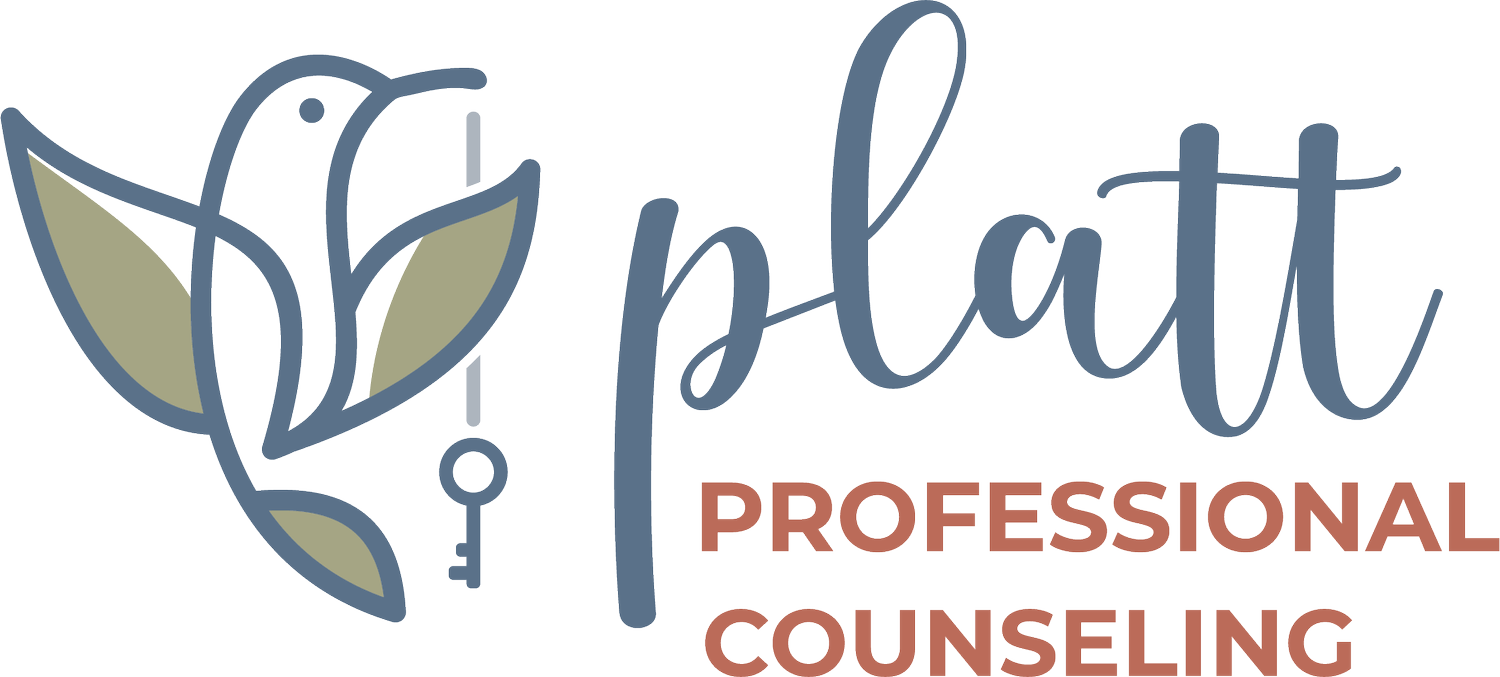5 Actions to Break Free from Feeling Overwhelmed
 Feeling overwhelmed is a common experience in today's fast-paced world. Many of us find ourselves trapped in self-sabotaging habits that worsen our stress and negatively impact our mental health. Research by the Mental Health Foundation and YouGov found, “74% of UK adults have felt so stressed at some point over the last year they felt overwhelmed or unable to cope.”In this blog post, we will explore five key responses to being overwhelmed and discuss strategies to break free from these habits. By implementing these insights, you can empower yourself to navigate life's challenges more effectively and cultivate a greater sense of well-being.
Feeling overwhelmed is a common experience in today's fast-paced world. Many of us find ourselves trapped in self-sabotaging habits that worsen our stress and negatively impact our mental health. Research by the Mental Health Foundation and YouGov found, “74% of UK adults have felt so stressed at some point over the last year they felt overwhelmed or unable to cope.”In this blog post, we will explore five key responses to being overwhelmed and discuss strategies to break free from these habits. By implementing these insights, you can empower yourself to navigate life's challenges more effectively and cultivate a greater sense of well-being.
Taking Control of Solutions:
When overwhelmed, it's easy to feel like we lack control over finding solutions. However, it's crucial to recognize that you have the power to take action, even if it means starting with small steps. Instead of waiting for the perfect conditions or ideal solutions, embrace the available resources and opportunities around you. Take a proactive approach and make use of what's accessible to you now.It's important to understand that progress and growth often come from taking imperfect action rather than waiting for everything to fall into place. By acting on your ideas, you regain a sense of empowerment and open doors to positive change. Even if you can't find a therapist that meets all your criteria, consider having a few sessions with one who aligns with some of your needs. Taking that initial step can provide you with valuable insights and support, while also reinforcing your ability to actively seek solutions.Remember that when you have good ideas but don't act on them, it can lead to a sense of powerlessness or incompetence. Embracing the courage to act, even in the face of uncertainty, allows you to practice finding doable solutions, builds self-efficacy, and helps you reap the benefits sooner. By taking control of the solutions, you reclaim your agency and set yourself on a path toward personal growth and overcoming feeling overwhelmed.
Tapping into the Unconscious Mind:
Our unconscious mind possesses a remarkable capacity to generate innovative solutions and insights. Instead of constantly suppressing work-related thoughts during your personal time, it can be beneficial to allow your mind to wander and explore. Engaging in activities that encourage free thinking, such as taking mindful walks or pursuing hobbies that ignite your creativity, can provide an opportunity for your unconscious mind to come to the forefront.By intentionally creating space for your mind to wander, you open up the possibility of stumbling upon valuable solutions and gaining clarity. These moments of mental drift can lead to unexpected connections and breakthroughs. It is during these times that your unconscious mind works its magic, solving problems and providing fresh perspectives effortlessly.Rather than considering your drifting mind as a distraction or an obstacle to productivity, recognize its potential as a source of productivity and problem-solving. Embrace the power of your unconscious mind and allow it to guide you towards innovative ideas and solutions. By tapping into this innate resource, you can unlock your full productivity potential and enhance your ability to navigate through overwhelming situations with greater ease.
Practicing Self-Compassion:
Feeling overwhelmed does not indicate weakness or incompetence. It's important to challenge the notion that we should be able to handle everything effortlessly. Instead of falling into the trap of negative thought patterns and self-judgment, it is essential to cultivate self-compassion and understanding.Practicing self-compassion involves acknowledging that the feeling of overwhelm is a natural response to demanding circumstances and giving yourself permission to feel and process these emotions. Treat yourself with kindness, patience, and understanding during challenging times. Remember that you are human, and it is normal to experience a range of emotions, including overwhelmed.By embracing self-compassion, you create a nurturing environment that allows for growth and learning. Instead of being self-critical, shift your focus towards self-care and self-support. Try saying things like, “I am a strong and capable person.” “My personal boundaries are important and I’m allowed to express my needs to others.”“I don’t have to give up my hopes and dreams”Offer yourself words of encouragement and remind yourself that you are doing the best you can. Through self-compassion, you develop resilience and a greater capacity to navigate through life's transitions with grace and self-acceptance.
Avoiding Rigid Responses to Stress:
Stress has a way of triggering a "freeze mode" response, where our thinking becomes rigid and inflexible. However, this response only amplifies feelings of overwhelm and obstructs our ability to find effective solutions. To break free from this pattern, it's important to align our values with the demands of the situation.Take a moment to assess whether your dominant values, such as thoughtfulness or self-reliance, are serving you well in the given circumstances. Are they helping you navigate through the challenges or are they adding to the burden? Sometimes, it's necessary to adapt our approach and consider alternative strategies that better suit the situation at hand.By being open to flexibility and exploring different perspectives, you can find new ways to tackle the sources of overwhelm. Recognize that your values can guide you, but they shouldn't restrict your ability to adapt and respond effectively. Embrace the opportunity to reassess and realign your values, allowing yourself to approach stressors with a fresh mindset and a willingness to explore innovative solutions.
Embracing a Positive Mindset:
It's important to challenge the belief that feeling overwhelmed is an inevitable and permanent state. Instead, adopt a growth mindset that sees feeling overwhelmed as an opportunity for personal development and resilience. By reframing your perspective, you can begin to embrace the belief that you have the capacity to learn, adapt, and thrive even in the face of challenges.Shift your focus towards the positive aspects that arise from navigating overwhelming situations. Cultivate a sense of gratitude for the lessons learned and the strength gained through these experiences. Recognize that each challenge presents an opportunity for growth and personal transformation.By embracing a positive mindset, you empower yourself to approach overwhelming circumstances with optimism and a willingness to learn. Embrace the belief that you are capable of overcoming obstacles and that every step taken towards managing feeling overwhelmed brings you closer to personal growth and a stronger, more resilient version of yourself.Feeling overwhelmed is a common experience, but it doesn't have to consume us. By recognizing and addressing the self-sabotaging habits that exacerbate stress, we can empower ourselves to navigate life's transitions and challenges more effectively. Embrace the strategies discussed in this blog post to regain control, tap into your inner wisdom, practice self-compassion, remain adaptable, and foster a positive mindset. Break free from the grip of overwhelm and embrace a more resilient and fulfilling life.Remember, you have the power to cultivate a sense of calm, clarity, and well-being in the face of overwhelming circumstances. Start implementing these perspectives and strategies today, and witness the transformative impact they can have on your mental health and overall quality of life.

